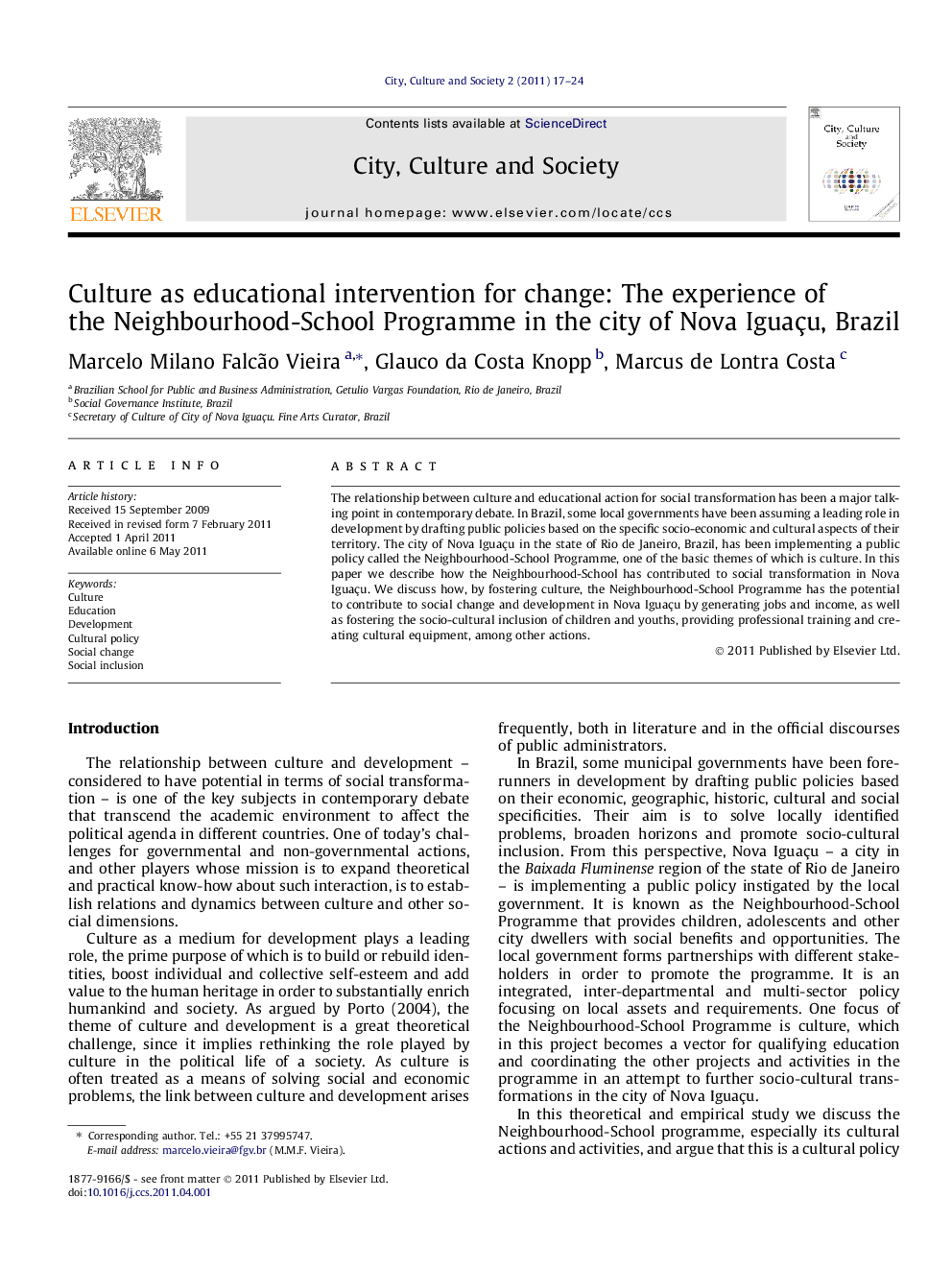| Article ID | Journal | Published Year | Pages | File Type |
|---|---|---|---|---|
| 5048465 | City, Culture and Society | 2011 | 8 Pages |
The relationship between culture and educational action for social transformation has been a major talking point in contemporary debate. In Brazil, some local governments have been assuming a leading role in development by drafting public policies based on the specific socio-economic and cultural aspects of their territory. The city of Nova Iguaçu in the state of Rio de Janeiro, Brazil, has been implementing a public policy called the Neighbourhood-School Programme, one of the basic themes of which is culture. In this paper we describe how the Neighbourhood-School has contributed to social transformation in Nova Iguaçu. We discuss how, by fostering culture, the Neighbourhood-School Programme has the potential to contribute to social change and development in Nova Iguaçu by generating jobs and income, as well as fostering the socio-cultural inclusion of children and youths, providing professional training and creating cultural equipment, among other actions.
⺠Culture can be one of the key elements of the development policy. ⺠Education and culture are strongly linked when a development policy is concerned. ⺠Art and culture can be major motivating agents for progress, since they stimulate practices for development of the awareness and self-esteem of the individuals who come to see themselves as citizens and ethical and political beings that are able and responsible for transforming their own reality and the reality around them. ⺠By fostering culture, the Neighbourhood-School Programme has the potential to contribute to social change and development in Nova Iguaçu by generating jobs and income, as well as fostering the socio-cultural inclusion of children and youths, providing professional training and creating cultural equipment, among other actions.
